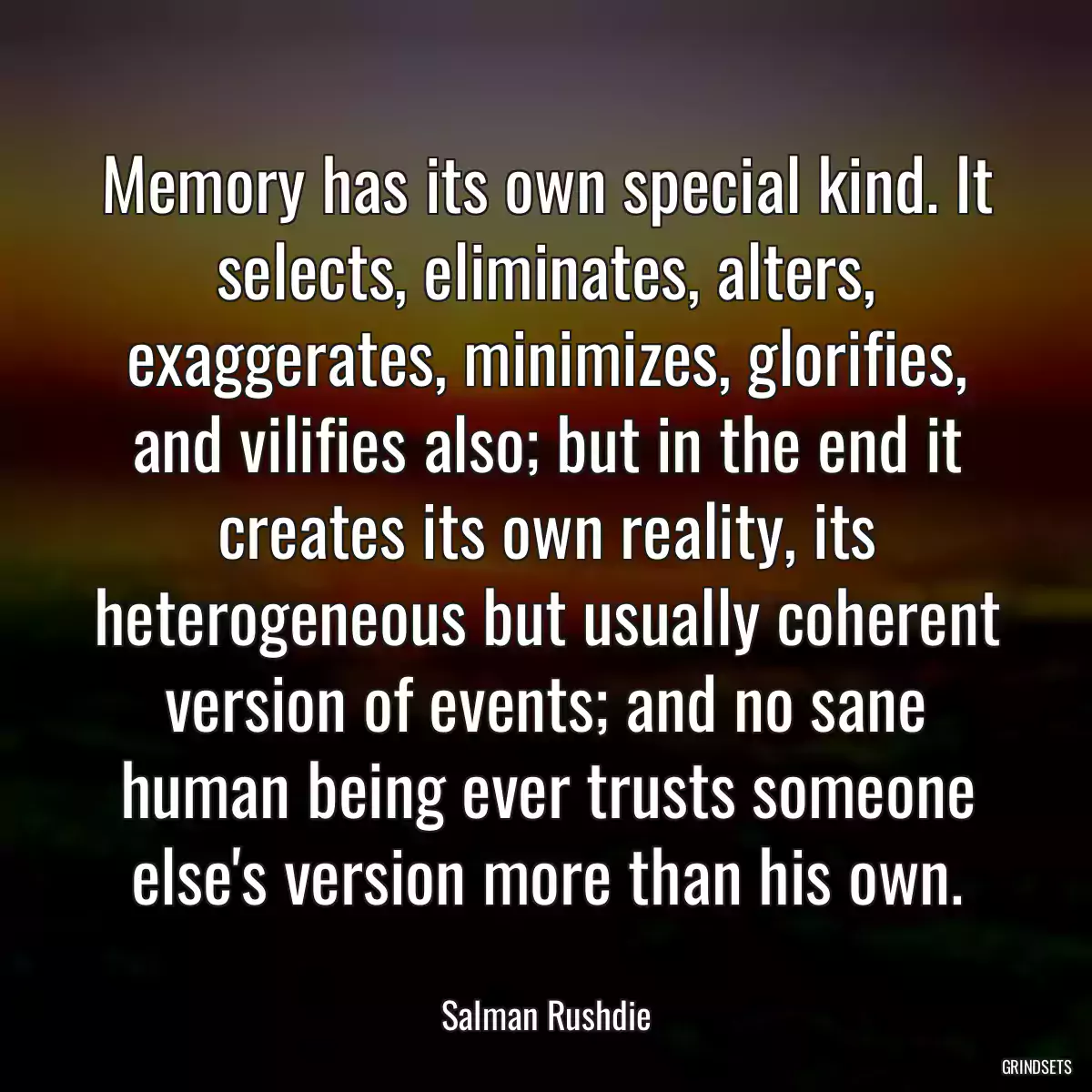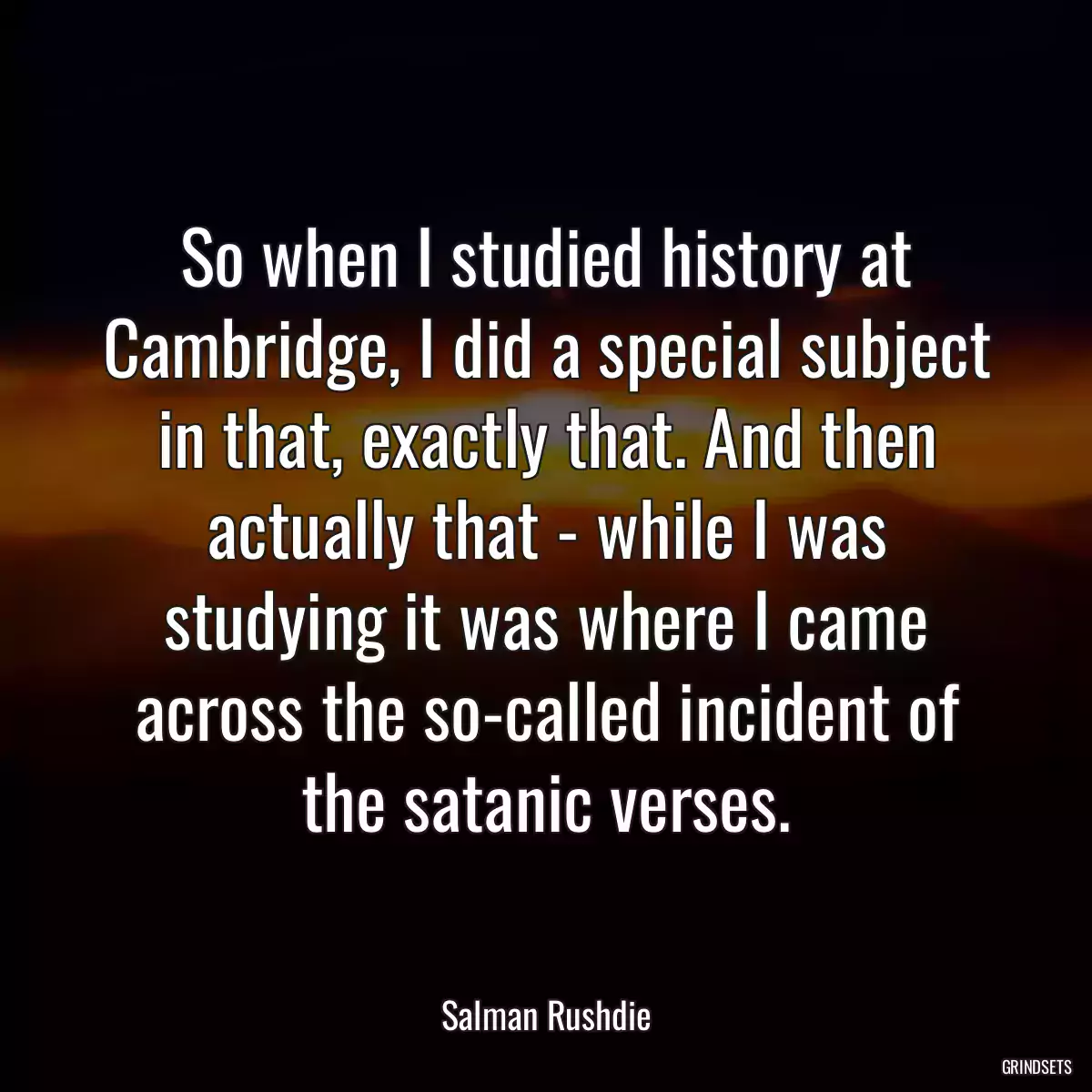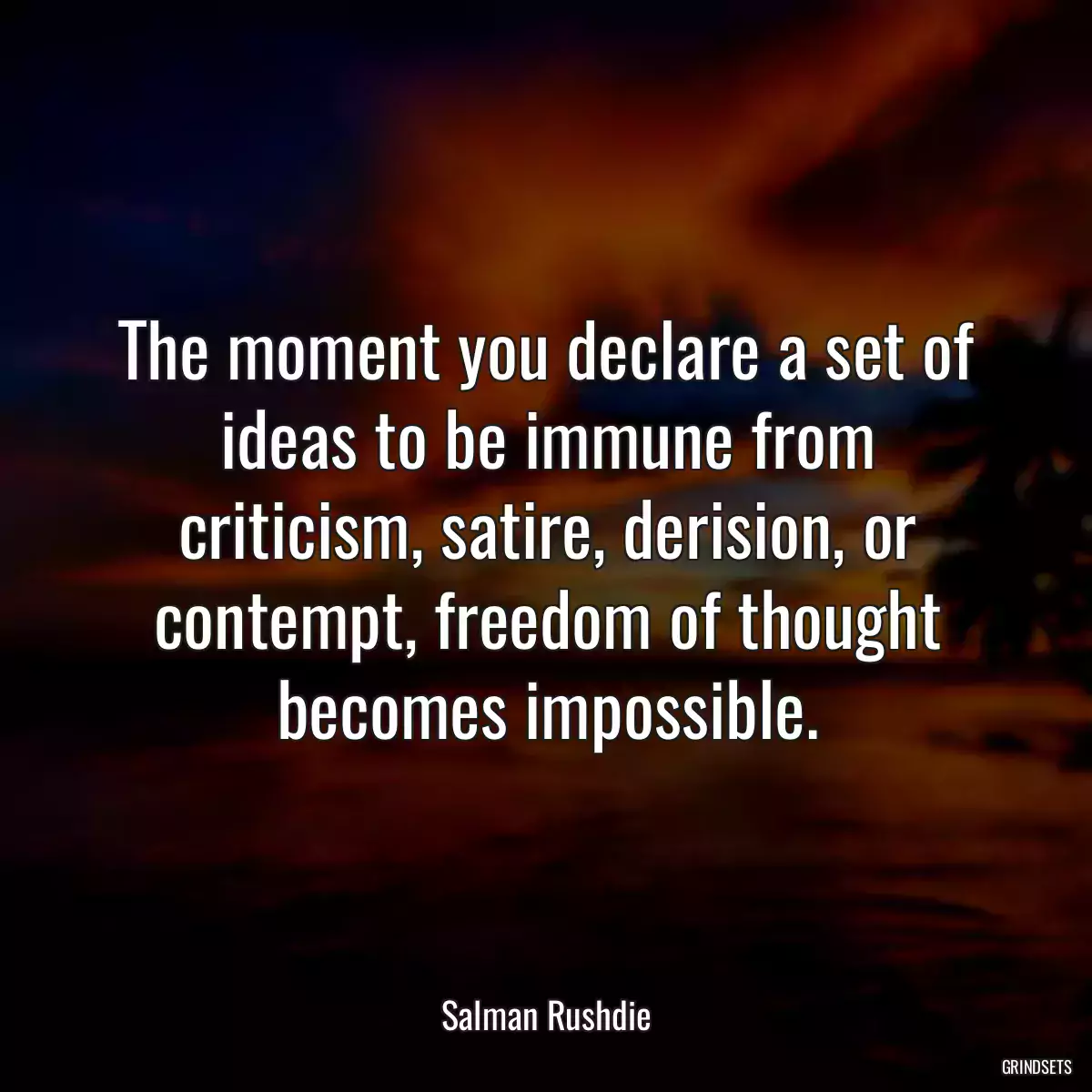
Quotes Salman Rushdie - page 4
Find dozens of Salman Rushdie with images to copy and share.

In the waking dreams our societies permit, in our myths, our arts, our songs, we celebrate the nonbelongers, the different ones, the outlaws, the freaks.
I do think there was a period there when my sanity was under intense pressure, and I didn't know what to say or do or how to act. I was literally living from day to day.
What kind of Christmas present would Jesus ask Santa for?
You may also like
The world is full of things that upset people. But most of us deal with it and move on and don't try and burn the planet down.
we look up and we hope the stars look down, we pray that there may be stars for us to follow, stars moving across the heavens and leading us to our destiny, but it's only our vanity. We look at the galaxy and fall in love, but the universe cares less about us than we do about it, and the stars stay in their courses however much we may wish upon them to do otherwise. It's true that if you watch the sky-wheel turn for a while you'll see a meteor fall, flame and die. That's not a star worth following; it's just an unlucky rock. Our fates are here on earth. There are no guiding stars.
Prophet Mohammed would have no objection to The Satanic Verses.
Well, we're still in the middle of it. And it doesn't show any sign of going away. And these attacks that were - that seemed so odd at the time, with "Satanic Verses," because we didn't have any context for this. You know, where did that come from? It seemed to come out of nowhere.
'The Satanic Verses' was denied the ordinary life of a novel. It became something smaller and uglier: an insult.

In writing 'The Satanic Verses,' I think I was writing for the first time from the whole of myself. The English part, the Indian part. The part of me that loves London, and the part that longs for Bombay. And at my typewriter, alone, I could indulge this.
When I was writing The Satanic Verses, if you had asked me about the phenomenon that we all now know as radical Islam, I wouldn't have had much to say. As recently as the mid-1980s, it didn't seem to be a big deal.
To be born again,' sang Gibreal Farishta tumbling from the heaveans, 'first you have to die. Ho ji! Ho ji! To land upon the bosomy earth, first one needs to fly Tat-taa! Takatun! How to ever smile again, if first you won't cry? How to win the darling's love mister, without a sigh?
Names, once they are in common use, quickly become mere sounds, their etymology being buried, like so many of the earth's marvels, beneath the dust of habit.
Religion, a mediaeval form of unreason, when combined with modern weaponry becomes a real threat to our freedoms. This religious totalitarianism has caused a deadly mutation in the heart of Islam and we see the tragic consequences in Paris today. I stand with Charlie Hebdo, as we all must, to defend the art of satire, which has always been a force for liberty and against tyranny, dishonesty and stupidity. 'Respect for religion' has become a code phrase meaning 'fear of religion.' Religions, like all other ideas, deserve criticism, satire, and, yes, our fearless disrespect.
‘Respect for religion’ has become a code phrase meaning ‘fear of religion.’ Religions, like all other ideas, deserve criticism, satire, and, yes, our fearless disrespect.
I stand with Charlie Hebdo, as we all must, to defend the art of satire, which has always been a force for liberty and against tyranny, dishonesty and stupidity.
I stand with Charlie Hebdo, as we all must, to defend the art of satire.
You may also like

When...did it become irrational to dislike religion, any religion, even to dislike it vehemently? When did reason get redescribed as unreason? When were the fairy stories of the superstitious placed above criticism, beyond satire? A religion was not a race. It was an idea, and ideas stood (or fell) because they were strong enough (or too weak) to withstand criticism, not because they were shielded from it. Strong ideas welcomed dissent.